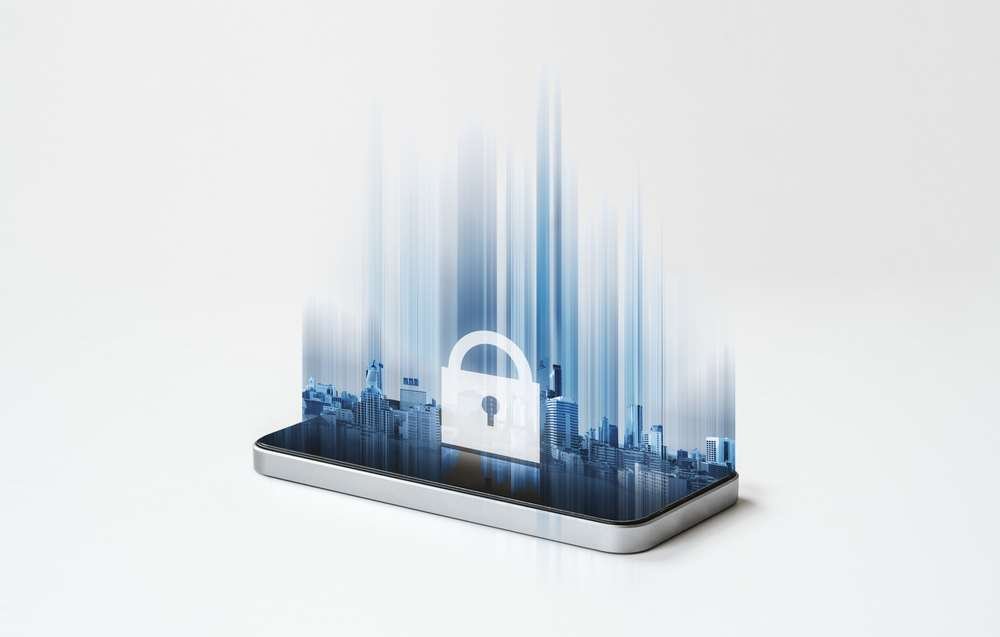Mobile computing: securing the data of mobile and remote workers…
Published by Gbaf News
Posted on June 5, 2020
5 min readLast updated: January 21, 2026

Published by Gbaf News
Posted on June 5, 2020
5 min readLast updated: January 21, 2026

By Matt Bennett of Cellhire

Matt Bennett of Cellhire
As mobile and remote working become an inherent part of the “new normal”, at least in the short to medium term, businesses are looking at the models that best suit them and their staff. And data. Banks and other financial services operations have long used a form of remote working – outsourced functions in overseas locations – and turned their attention closer to home during the COVID-19 lockdown.
While working from home for a full working week suits some staff, feedback indicates that although many employees welcome the break from having to commute to central offices every day, and enjoy working from home, they would welcome working from satellite, or hub offices – on some days, at least.
Hot desking in any work location might be out of fashion, thanks to COVID-19, but working from temporary or permanent hub offices could become part of a new “norm”.
Made possible by cloud computing or a company’s own remotely-accessed data centre or server, hub offices and working from home enable staff to be more widely dispersed, itself a reduction in business risk. However, that positive outcome is balanced by increased technical threats associated with the ongoing proliferation of mobile computing devices used by employees: smartphones, laptops, tablets – and thin clients or “dumb terminals”.
Such devices, combined with cloud computing, enable a business to be very agile – a necessity in emergencies such as lockdowns or fire and flood – but pose risks around data security and privacy.
Security
Critical to any mobile computing device’s operation is network and data security, and of course access to a copper wire or fibre optic connection – for example, when working at home – or a 4G or 5G network signal. Signals can be accessed via any device with a data SIM card or dongle, or via a Mobile Hotspot, a small, pocket-size router that provides an instant mobile, private hotspot. If the network connection is as secure as technically possible, devices and data will be much more secure.
Using a portable router overcomes hazards associated with free WiFi or even some paid-for WiFi.
One risk with free WiFi is that a device can easily be hacked into by criminal elements using the same hotspot. With some paid-for WiFi, if the service shares the same password with other users, devices are likewise at risk.
Tools exist that make it easy for a hacker to snoop on other people’s browsing sessions over WiFi and steal information, and to capture and analyse traffic. Users of non private WiFi, beware.
Using multiple devices
Employees travelling together – social distancing regulations permitted – or working in the same hub or other location, might well use multiple portable devices. From a secure connection point of view, that’s no problem where a Mobile Hotspot is the single point of signal connection, because it typically allows up to 10 users to share the connection.
Device users, including users of thin clients, utilise a Mobile Hotspot in the same way they use a fixed line broadband router in the office or at home. The difference is that the Mobile Hotspot contains a data SIM card – or can be configured to access a rack of SIM cards – and is operated by battery [and, optionally, via mains electricity] and can be carried in a pocket.
To explain further, mobile computing device users don’t use their own data allowances when using a Mobile Hotspot. Indeed, they don’t even need a data SIM card in their device, or a dongle.
Another advantage of a Mobile Hotspot is its network signal strength and connection speed performance, both of which can be superior to a smartphone’s, tablet’s or a dongle’s. And, optionally, it doesn’t have to rely on a single network provider.
Lockdowns and other emergencies apart, the need for business agility – created by upsizing or downsizing, opening a temporary office or simply rationalising operations to improve efficiencies, can equate to greatly reduced need for fixed broadband connections. In their place are 4G and 5G mobile connections, providing instant internet and email access regardless of location. No more waiting for fixed connections!
Business continuity and contingency planning
In financial services especially, businesses rightly worry about the physical security of their in-house or outsourced data centres and computer systems. Applying the same level of concern to their data has come to the fore in this era of multiple device use in multiple locations, including when on the move.
Devices containing data and information can be lost, stolen or damaged. One answer to the security and data integrity issues arising from such threats, some of then human-error based, is to equip the workforce with thin clients. They don’t process data and don’t contain data. Likewise, a Mobile Hotspot doesn’t contain data [with an exception – just the data that enables a 4G or 5G connection, but that’s all].
Threats to data security and integrity posed by emergencies and more fluid ways of working, including mobile working via a mix of devices in a mix of locations, can be addressed by adapting business continuity and contingency to new realities, including ensuring safer short or longer term access to 4G and 5G networks via secure mobile hotspots.
In some situations, satellite phones can be added to the device mix for added security and flexibility, and smartphones and tablets used as thin clients.
If COVID-19 has taught business one thing, it’s “be prepared”.
Explore more articles in the Technology category











